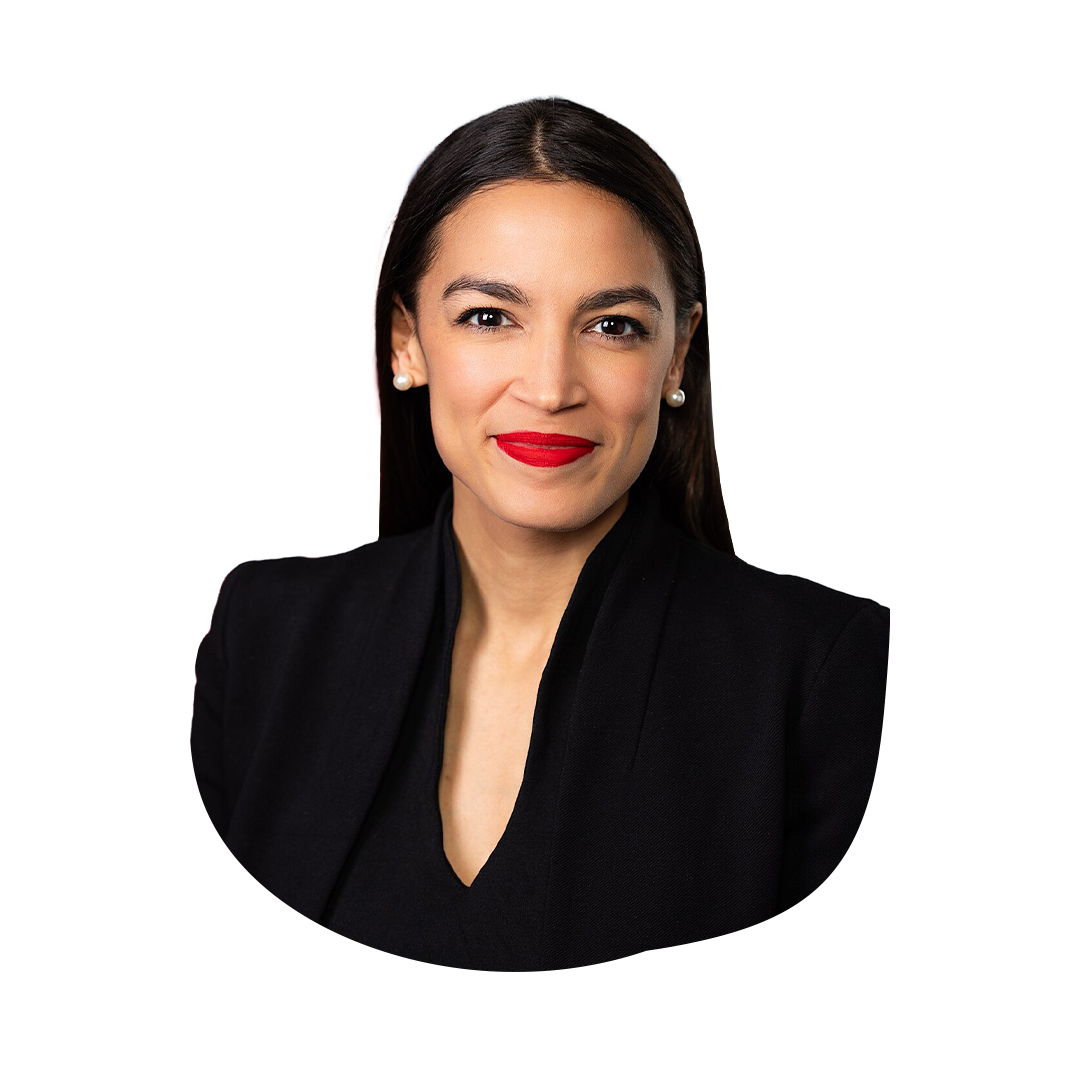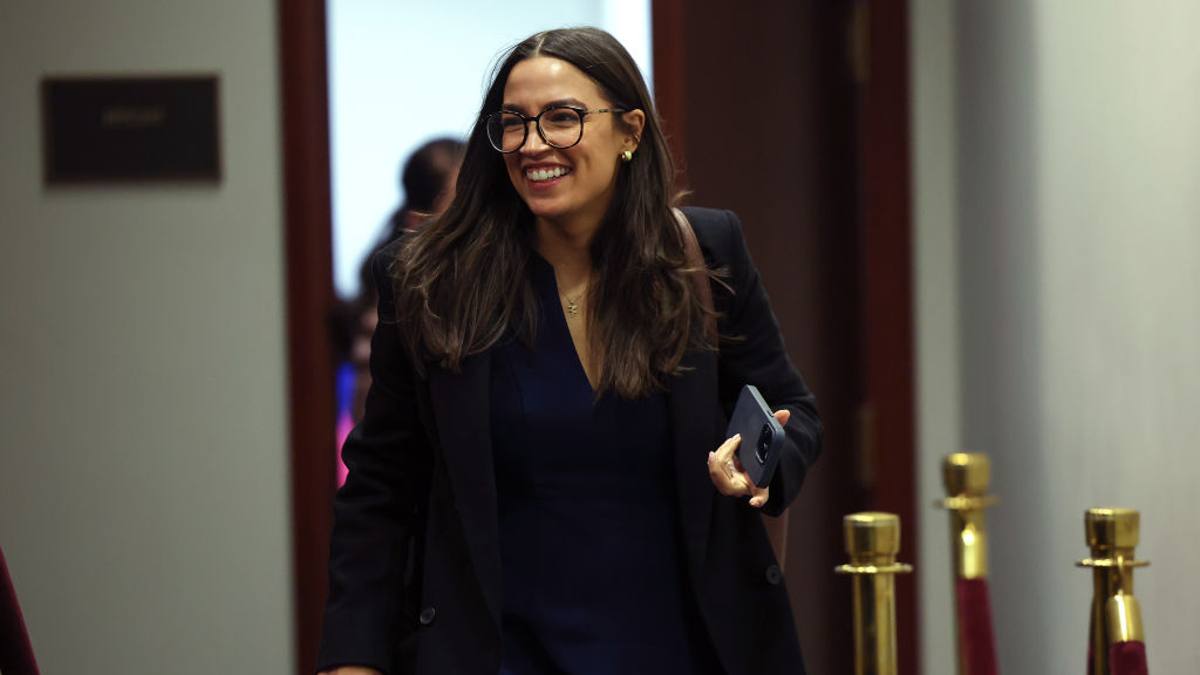AOC: Unpacking Her Background & Political Journey - Learn More Now!
Could a young, progressive voice from the Bronx truly reshape the American political landscape? Alexandria Ocasio-Cortez, often known as AOC, has demonstrably done just that, becoming a pivotal figure in contemporary American politics.
Born in the Parkchester neighborhood of the Bronx on October 13, 1989, Alexandria Ocasio-Cortez's journey from a modest upbringing to the halls of Congress is a testament to her tenacity and vision. Her story is a compelling narrative of rising from local activism to national prominence, challenging established norms and advocating for a more equitable society. Her father, Sergio Ocasio, was an architect of Puerto Rican descent, born in the Bronx. Her mother, raised in Puerto Rico, worked throughout her childhood as a domestic worker. Seeking better educational opportunities, her parents relocated the family 30 minutes north to Yorktown when Alexandria was a child. This move, a common aspiration for many families, laid the groundwork for her future endeavors.
Ocasio-Cortez's heritage is a vibrant tapestry reflecting the complexities of the Puerto Rican experience. She is of Spanish ethnicity with Taino Indian, Spanish colonizers, and Jewish ancestry. Her ancestry is a reflection of the broader Puerto Rican experience, encompassing Spanish, indigenous Tano, and African influences, which have historically defined the island's diverse population. This multifaceted background informs her perspective and fuels her commitment to social justice. She has noted that Puerto Rican heritage is made up of different ethnic components, but insists that it is a unified cultural identity.
| Category | Details |
|---|---|
| Full Name | Alexandria Ocasio-Cortez |
| Also Known As | AOC |
| Date of Birth | October 13, 1989 |
| Place of Birth | Parkchester, Bronx, New York |
| Political Party | Democratic Party |
| Congressional District | 14th Congressional District of New York |
| Term in House of Representatives | Since January 3, 2019 |
| Ethnicity/Ancestry | Puerto Rican (Spanish, Tano, Jewish, and African influences) |
| Education | Boston University (Bachelor of Arts in Economics and International Relations) |
| Key Political Focus | Climate Change, Economic Justice, Healthcare, Social Justice |
| Key Affiliations | Democratic Socialists of America |
| Reference | Wikipedia |
Ocasio-Cortez's rise to prominence has been anything but conventional. She worked as a bartender and waitress prior to entering politics, experiences that provided her with a firsthand understanding of the challenges faced by working-class Americans. Her ability to connect with everyday people and articulate their concerns has been a hallmark of her political style. Her campaign for the U.S. House of Representatives in 2018, against a long-term incumbent, captured the nation's attention. Her victory in the Democratic primary, followed by her successful bid in the general election, marked a significant shift in the political landscape. She has served as a member of the U.S. House of Representatives from New York since January 3, 2019.
AOC is a central figure in American progressivism, advocating for policies that address climate change, economic inequality, and access to healthcare. As a member of the Democratic Party, she has consistently championed policies aligned with these progressive ideals. Her advocacy extends to promoting a Green New Deal, a comprehensive plan to combat climate change while creating jobs and fostering economic opportunity. She has also been a vocal supporter of Medicare for All, advocating for universal healthcare access. Her positions and actions have positioned her as a leading voice for a younger generation of voters and for those seeking transformative change.
The media's portrayal of Ocasio-Cortez has been subject to intense scrutiny, often influenced by factors such as her gender, age, and ethnicity. Analysis of news articles from The New York Times and The Washington Post, from June 1, 2018, onwards, reveals a complex interplay of commentary and opinion. Some criticisms have focused on the perceived lack of experience, while others have questioned the accuracy of certain statements made in her biography. However, Ocasio-Cortez has often responded to these criticisms by remaining true to her values and focusing on the issues at hand.
Her communication style, characterized by its authenticity and use of social media, has been both praised and criticized. She has expertly used platforms like Twitter and Instagram to connect directly with her constituents and bypass traditional media gatekeepers. This direct engagement has enabled her to build a strong base of support and mobilize public opinion. Through these platforms, she shares her perspective, participates in discussions, and responds directly to questions from the public. Simultaneously, her use of social media has attracted criticism, with some arguing that it can lead to misinformation and oversimplification of complex issues.
The discourse surrounding Ocasio-Cortez also reflects broader discussions about the role of race, ethnicity, and gender in American politics. As a woman of color, she has faced unique challenges and scrutiny. However, her story underscores the importance of diversity in leadership. She embodies the changing demographics of the United States, representing the aspirations of a new generation. Her influence extends far beyond her district, inspiring other women and people of color to enter politics and advocate for their communities.
Her biography has, at times, been a subject of controversy regarding the accuracy of facts. She mentioned that her father was from the South Bronx, while her mother was from Puerto Rico. She also said in an interview that she has Sephardic Jewish roots as well. In acknowledging her diverse background, she reflects on the intertwined nature of Puerto Rican heritage. This heritage encompasses Spanish, indigenous Tano, and African influences, which have historically defined the island's diverse population. Ocasio-Cortezs journey exemplifies the dynamic interplay of personal identity, political ambition, and societal change. Her story is a reminder that the American political system is not static but is ever-evolving, shaped by individuals who dare to challenge the status quo and envision a more equitable future.
Her story serves as a window into the evolving nature of American politics and the enduring quest for social justice. As we learn more and more about the histories of others, our friends and neighbors, we start to uncover what we already know to be true.


